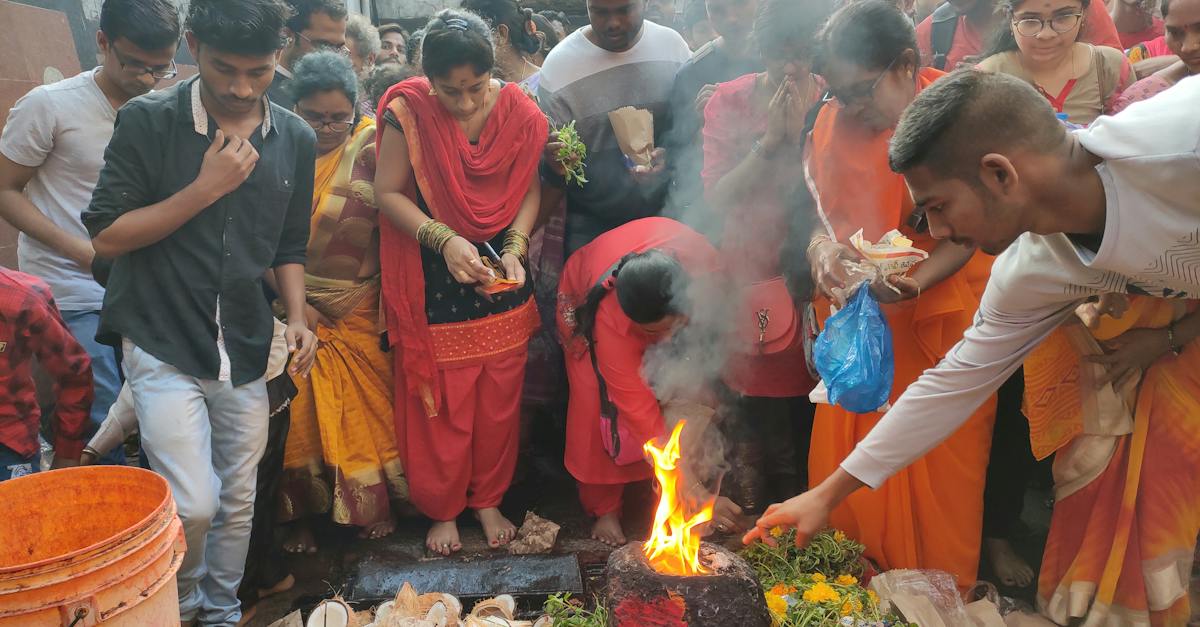Holiday heritage is a fascinating aspect of our cultural fabric, weaving together traditions, customs, and rituals that have been passed down from generation to generation. It’s a time when families come together to celebrate and honor their shared history, creating lasting memories and strengthening the bonds that connect them. From religious observances to seasonal festivities, each holiday carries its own unique heritage, reflecting the values and beliefs of a particular community or society. In this article, we will delve into the rich tapestry of holiday heritage, exploring the origins, significance, and enduring appeal of these cherished traditions. Join us as we uncover the stories behind the holidays we hold dear and discover the timeless beauty of our collective heritage.
The Importance of Holiday Heritage
Holiday heritage holds great significance in our lives as it plays a significant role in bringing families together, strengthening bonds, and fostering a sense of unity. It provides a unique opportunity to celebrate and honor our shared history, traditions, and values. Understanding the importance of holiday heritage is essential in preserving and passing down these cherished traditions to future generations.
- Preserving Cultural Identity: Holiday heritage allows us to connect with our roots and cultural identity. It perpetuates the customs and practices that have been passed down through generations. These traditions serve as a reminder of our history, shaping our sense of belonging and providing a deeper understanding of who we are and where we come from.
- Strengthening Family Bonds: Holidays offer a chance for families to come together and create lasting memories. Whether it’s gathering around the dinner table or participating in festive activities, these traditions create a sense of togetherness and reinforce the importance of family unity. Sharing stories and customs during holiday celebrations help build stronger relationships and create a sense of shared heritage.
- Passing Down Values and Beliefs: Holiday heritage allows us to pass down important values and beliefs to younger generations. Through celebrations and rituals, we can teach children about our cultural heritage, moral values, and the significance of traditions. This helps instill a sense of identity, pride, and respect for their heritage, ensuring that these customs are carried forward to the next generation.
- Creating Meaningful Connections: Holiday heritage provides a sense of community and connection with others who share similar traditions. Festivities and celebrations create opportunities to interact with neighbors, friends, and even strangers, fostering a sense of unity and understanding. These connections can create lifelong friendships and result in a greater sense of belonging within a larger societal context.
- Preserving History: Each holiday has a unique heritage that reflects the values and beliefs of a particular community or society. Exploring the origins of these traditions can uncover fascinating stories and historical events that have shaped our culture. Preserving this history is crucial in maintaining a link to our past and understanding the journey that led to our present-day celebrations.
Holiday heritage enriches our lives by providing a connection to our cultural roots, strengthening family bonds, passing down values, creating meaningful connections, and preserving history. Recognizing and celebrating the importance of holiday heritage ensures that these cherished traditions continue to be cherished and enjoyed for generations to come.
Exploring Cultural Traditions
When it comes to holiday heritage, exploring cultural traditions is a vital aspect. Each culture has its own unique customs and practices that are passed down from generation to generation. These traditions not only provide a glimpse into a community’s history but also serve as a way to stay connected to one’s roots and identity.
Cultural traditions are an essential part of holiday heritage as they reflect the values, beliefs, and customs that have shaped a community over time. From traditional meals and music to festive rituals and decorations, these traditions add depth and meaning to holiday celebrations.
By exploring these cultural traditions, individuals are able to immerse themselves in the rich tapestry of their heritage. It allows them to understand and appreciate the practices that have been handed down through the years and the significance behind them. Whether it’s lighting candles for Diwali, decorating a Christmas tree, or preparing special dishes for Hanukkah, these traditions offer a sense of belonging and reinforce a community’s shared history.
One of the benefits of exploring cultural traditions is the opportunity to learn about different cultures and expand one’s horizons. It allows for the celebration of diversity and promotes cultural dialogue and understanding. By experiencing and participating in the traditions of other communities, individuals can gain insights into different ways of life and foster a sense of unity and interconnectedness.
Moreover, by embracing and exploring cultural traditions, individuals can create lasting memories and meaningful connections with their loved ones. Coming together to celebrate and partake in these traditions strengthens family bonds and builds a sense of togetherness. Whether it’s singing carols, exchanging gifts, or participating in religious ceremonies, these shared experiences create a sense of joy and warmth that can be cherished for years to come.
Exploring cultural traditions is a crucial component of holiday heritage. It allows individuals to delve into the customs and practices that define their cultural identity and reinforces a sense of belonging and unity. Moreover, it provides an opportunity for individuals to learn about other cultures and build meaningful connections with their loved ones. By embracing and celebrating these traditions, holiday heritage continues to thrive and be cherished by future generations.
Religious Observances: A Window Into Belief Systems
Religious observances play a significant role in holiday heritage as they provide a glimpse into the belief systems that have shaped different cultures and communities. These observances encompass a wide range of traditions, rituals, and ceremonies that are deeply rooted in religious teachings and practices. Exploring these religious observances not only allows individuals to understand the cultural significance of certain holidays but also provides insights into the values and customs that guide these belief systems.
1. Christmas: Celebrating the Birth of Jesus
For Christians worldwide, Christmas is a time of great significance as it commemorates the birth of Jesus Christ. The holiday is marked by various religious observances that add depth and meaning to the celebrations. These observances can include attending midnight Mass, participating in nativity plays, or engaging in prayer and reflection. Each of these practices reflects the core beliefs of Christianity and serves as an opportunity to connect with divinity and strengthen one’s faith.
2. Hanukkah: The Festival of Lights
Hanukkah, also known as the Festival of Lights, holds tremendous importance for Jewish communities around the world. It commemorates the miracle of the oil that lasted for eight days in the ancient Jewish temple. During Hanukkah, families come together to light the menorah, recite prayers, and sing traditional songs. These rituals not only symbolize the miracle but also serve as a reminder of perseverance and the power of faith against all odds.
3. Ramadan: A Month of Fasting and Reflection
For Muslims, the holy month of Ramadan is a time of fasting, prayer, and reflection. It is believed to be the month in which the first verses of the Quran were revealed to the Prophet Muhammad. Muslims observe strict fasting from dawn till sunset, refraining from food, drink, and other physical pleasures. This period of self-discipline and spiritual devotion fosters empathy, gratitude, and a deeper connection with Allah.
4. Diwali: The Festival of Lights
Diwali, also known as Deepavali, is a significant Hindu festival celebrated across different regions of India and other countries with Hindu populations. It symbolizes the victory of light over darkness and good over evil. During Diwali, families light oil lamps called “diyas,” burst fireworks, exchange gifts, and create intricate rangoli designs. These practices not only illuminate homes but also represent the triumph of knowledge, righteousness, and inner light.
Seasonal Festivities: Embracing Nature and Changing Seasons
Seasonal festivities provide a unique opportunity to embrace the beauty of nature and the changing seasons. From vibrant spring festivals to cozy winter celebrations, these events bring people together to appreciate the wonders of the natural world. By participating in these festivities, individuals can deepen their connection to the environment and create cherished memories.
One example of a seasonal celebration is the spring equinox, which marks the beginning of spring. During this time, many cultures around the world hold festivals to welcome the longer days and rejuvenation of nature. In Japan, the cherry blossom festival, or Hanami, is a cherished tradition where people gather under blooming cherry trees to witness the fleeting beauty of the delicate flowers. Similarly, in India, the festival of Holi is a colorful extravaganza where people play with vibrant powdered colors to celebrate the arrival of spring.
As summer arrives, communities come together to celebrate the abundance of nature. In some Scandinavian countries, the Midsummer festival is a joyous occasion where people gather around bonfires to celebrate the season of light and the fertility of the earth. In the United States, Independence Day celebrations on the Fourth of July often include outdoor picnics, fireworks, and parades, showcasing the beauty of summer and the nation’s history.
Autumn ushers in a time of harvest and reflection, and many cultures honor this season with festivals. In Germany, Oktoberfest is a world-renowned beer festival that celebrates the harvest and the cultural heritage of the Bavarian region. In Japan, the autumnal equinox is observed with the holiday of Respect for the Aged Day, where families come together to appreciate the wisdom and experience of their elders.
Finally, as winter descends, festive traditions abound to bring warmth and cheer to the cold months. Christmas, celebrated by Christians around the world, is a time of gathering with loved ones, exchanging gifts, and expressing kindness. The Jewish festival of Hanukkah commemorates the miracle of the oil in the ancient temple and is celebrated by lighting candles on a menorah. Other winter celebrations include the Muslim festival of Eid al-Fitr and the Hindu festival of Diwali, both of which bring communities together to celebrate light, family, and togetherness.
By embracing the seasonal festivities and appreciating the beauty and significance of nature and changing seasons, individuals can create meaningful connections, deepen their understanding of cultural heritage, and foster a sense of unity in the community.
Passing Down Traditions: The Role of Family and Community
Holiday heritage is not only about embracing cultural traditions but also passing them down from one generation to the next. Family and community play a crucial role in preserving these customs and ensuring their continued importance and relevance.
Within families, holiday traditions are often deeply ingrained and handed down through the generations. These traditions create a sense of continuity and provide a connection to the past. Parents pass on their own childhood traditions to their children, ensuring that these customs and rituals are carried on and cherished. Whether it’s cooking a special meal together, decorating the home in a certain way, or participating in specific activities, these traditions strengthen family bonds and create treasured memories.
Beyond the family unit, the wider community also has a part to play in passing down holiday traditions. Community events and gatherings provide an opportunity for people to come together, celebrate, and share their customs with others. These collective celebrations foster a sense of belonging and unity, especially for individuals who may be far away from their families or have different cultural backgrounds. By participating in community events, individuals can learn about and appreciate the traditions of others, strengthening community ties and promoting cultural understanding.
The role of family and community in passing down traditions is essential for preserving cultural heritage. By ensuring that these customs are taught, celebrated, and kept alive, future generations can continue to connect with their roots and understand the significance of these practices. The passing down of traditions ensures that holiday heritage remains vibrant and relevant, bridging the gap between the past and the present.
Conclusion: Preserving and Celebrating Our Collective Heritage
Exploring cultural traditions is an essential part of holiday heritage. By delving into the customs, values, and beliefs that have shaped communities over time, we add depth and meaning to our holiday celebrations. Religious observances, such as Christmas, Hanukkah, Ramadan, and Diwali, provide insights into belief systems and cultural significance. Seasonal festivities allow us to embrace nature and the changing seasons.
Family and community play a crucial role in passing down holiday traditions. These traditions create a sense of continuity, strengthen family bonds, and foster a sense of belonging and unity within the wider community. Preserving cultural heritage is vital for ensuring that future generations can continue to connect with their roots.
As we celebrate our holiday heritage, let us remember the importance of embracing and honoring the diverse traditions that make up our collective heritage. By preserving and celebrating our cultural heritage, we not only enrich our own lives but also contribute to the preservation of our shared history and identity.
Frequently Asked Questions
Q: Why is it important to explore cultural traditions during the holidays?
A: Exploring cultural traditions during the holidays is important because it adds depth and meaning to celebrations. Cultural traditions reflect the values, beliefs, and customs of a community, creating a connection to heritage and creating a sense of belonging.
Q: How do religious observances contribute to holiday heritage?
A: Religious observances, such as Christmas, Hanukkah, Ramadan, and Diwali, provide insights into belief systems and cultural significance. These observances reflect the traditions and practices of different faiths, adding richness to holiday heritage.
Q: What is the significance of seasonal festivities in holiday heritage?
A: Seasonal festivities, such as winter solstice or spring equinox celebrations, embrace nature and changing seasons. These festivities connect people to the natural world and can foster a sense of awe and appreciation for the cycles of life.
Q: How do family and community play a role in passing down holiday traditions?
A: Family and community play a vital role in passing down holiday traditions. These traditions strengthen family bonds, create a sense of continuity, and foster a sense of belonging and unity within the wider community.
Q: Why is it important to preserve cultural heritage through passing down traditions?
A: Preserving cultural heritage through passing down traditions ensures that future generations can connect with their roots. It allows for the continuation of customs, values, and beliefs, maintaining a sense of identity and cultural cohesion.




